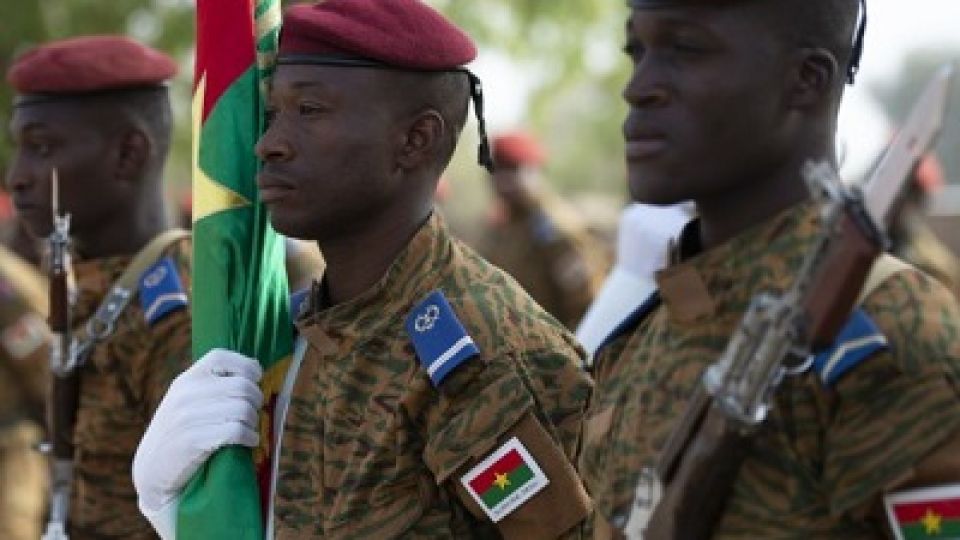from ISSOUF TRAORE in Ouagadougou, Burkina Faso
Burkina Faso Bureau
OUAGADOUGOU, (CAJ News) – ESCALATING attacks by non-state armed groups and a fallout with the United Nations (UN) and former coloniser, France, highlight the rapidly deteriorating multidimensional crisis in Burkina Faso.
The skirmishes dampen prospects of peace in the West African country that has found harmony and stability elusive since self-rule over 62 years ago.
Volatility experienced in recent weeks adds to the two military coups staged in 2022, the most recent at the end of September.
The past two years have seen a sharp deterioration in the security situation across Burkina Faso’s northern and eastern regions due to the presence of Islamist groups.
They are proving to be a handful for Burkina Faso’s estimated 12 000 military personnel (7 000 army and 5 000 air force).
Al Qaeda-affiliated Jama’at Nusrat al-Islam wal-Muslimin (JNIM) and the Islamic State (ISIS) Sahel Province are the main perpetrators of the terror attacks in the nation of some 22 million people, around half of them Muslim.
More than 1 million people have been displaced in two years and 3,5 million are in need of humanitarian assistance.
In December, JNIM attacked several security positions mainly in the Boucle du Mouhoun and Centre-North regions. A number of military personnel were killed and gendarmerie, police station and prison destroyed.
The mayor’s office in the town of Mane in the north-central Sanmatenga province was also vandalised.
Meanwhile, the ISIS State Sahel Province engaged in a wave of killings, abductions, looting and property destruction in the Oudalan and Seno provinces.
The Armed Conflict Location and Event Data Project (ACLED) documented the terror spate.
Last week, ten people were killed when a bus hit a roadside bomb in the east.
While jihadists have emerged the biggest security threat, the issue has led to the formation of self-defense and vigilante groups such as Koglwéogo terrorisising communities.
The military coup in September resulted from growing discontent with the state’s capacity to counter terrorism and violent extremism.
Captain Ibrahim Traoré led the coup that toppled Lt Col. Paul-Henri Sandaogo Damiba.
Damiba himself removed President Roch Marc Christian Kaboré in a coup last January.
The military junta pledged to improve security and eventually restore civilian rule but failed to defeat the jihadists.
Instead, the Islamist groups expanded their operations such that it is believed by September, they controlled 40 percent of this country that has an area of 274 200 km².
The military has on several occasions intervened during times of crisis in the former Upper Volta. The first came in 1966, six years after independence, when Lieut. Col. Sangoulé Lamizana, ousted the elected government of Maurice Yaméogo.
Crisis24, the security think tank, has forecast further upheaval if the insecurity persisted under the new leadership.
“If Traoré cannot swiftly improve the situation, as seems probable, further coup attempts or mutinies are likely, particularly given his junior rank and the reluctant and late support from the chiefs of staff for his coup,” it stated.
The jihadist activity is not only driving political instability, economic hardship and banditry.
It is impacting on the economy.
Militants are targeting gold-mining companies. The precious metal is the country’s main source of income. The radicals take over the resultant abandoned artisanal mining sites for profit to finance their terror in Africa’s fourth-largest gold producer.
The insecurity is a blow to Burkina Faso’s prospects of attracting foreign investments.
It comes as global Asian superpower, China, and Burkina Faso were consolidating relations that resumed in 2018.
Lu Shan, Chinese Ambassador, presenting his credentials to then-president, Damiba, said China supports Burundi’s efforts in countering terrorism and responding to humanitarian crises.
“China is willing to work with Burkina Faso to promote the continuous and greater development of the friendly and cooperative relations between the two countries,” Shan assured.
Mao Ning, spokesperson of the Chinese Foreign Ministry, later responded to the September 2022 coup.
“China respects the choices made by people in Burkina Faso and believes they have the ability to deal with their internal affairs and realize and maintain peace and stability,” she was quoted at a press conference.
While Burkinabe relations with China are solidifying, those with France and the UN are fractured.
Anti-French and pro-Russian sentiments are high since the new military administration of Traoré and Prime Minister Apollinaire Joachim Kyélem de Tambèla came into power.
This as Burkina Faso enhances ties with Russia to eradicate terrorism, following in the footsteps of neighbouring Mali.
Depending on which version of the incident one aligns with, Burkina Faso has either expelled French ambassador, Luc Hallade, or asked France to recall the envoy.
Late December, the transitional government of Traoré the Resident Coordinator/Humanitarian Coordinator of the UN and Designated Security Official in the country, Barbara Manzi, as persona non grata, despite this doctrine inapplicable to UN officials.
She is accused of meddling in the internal affairs of the troubled country.
– CAJ News

